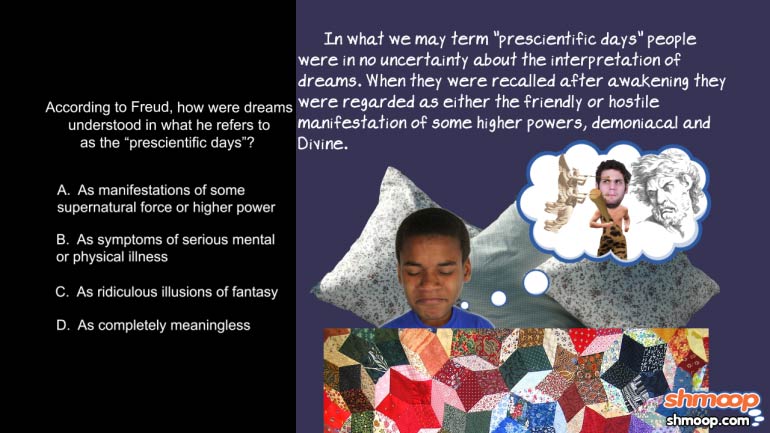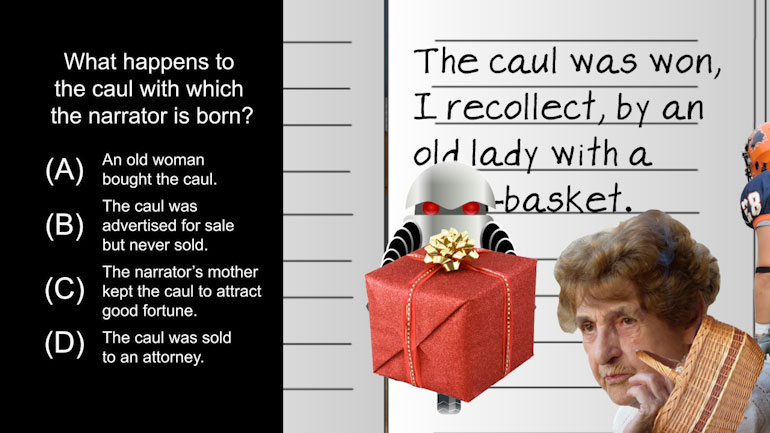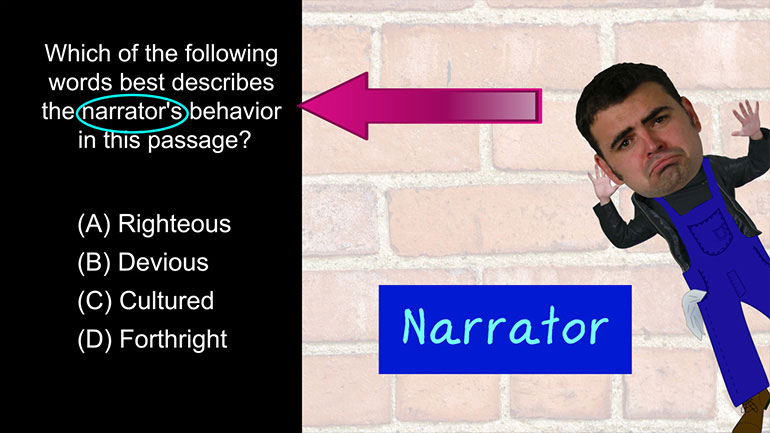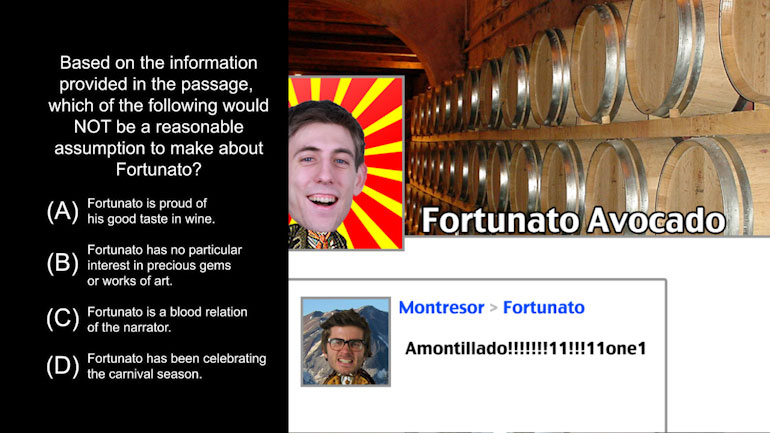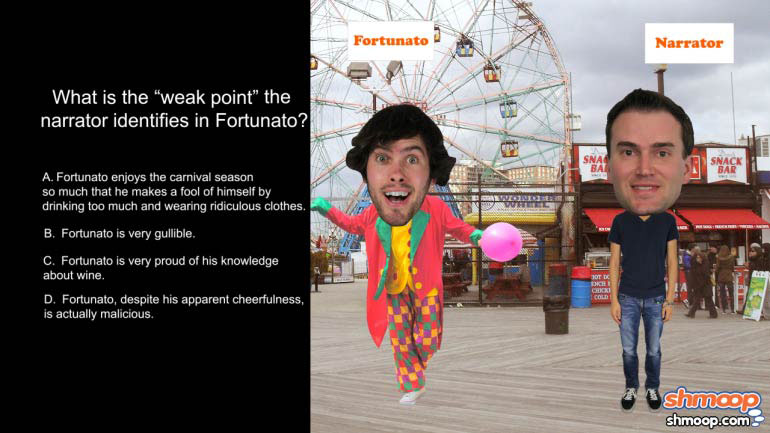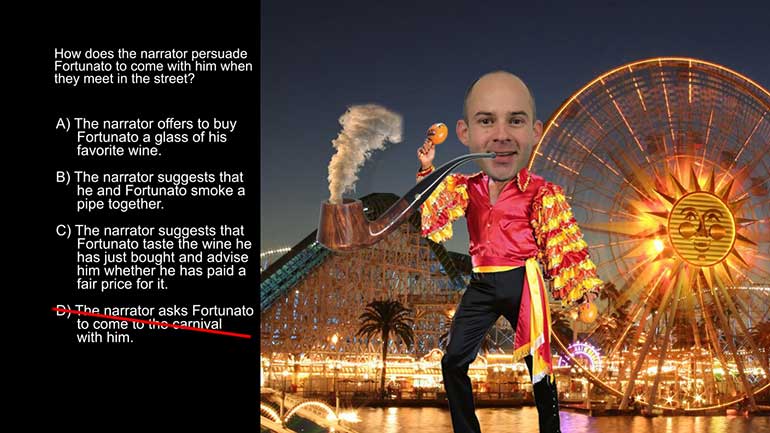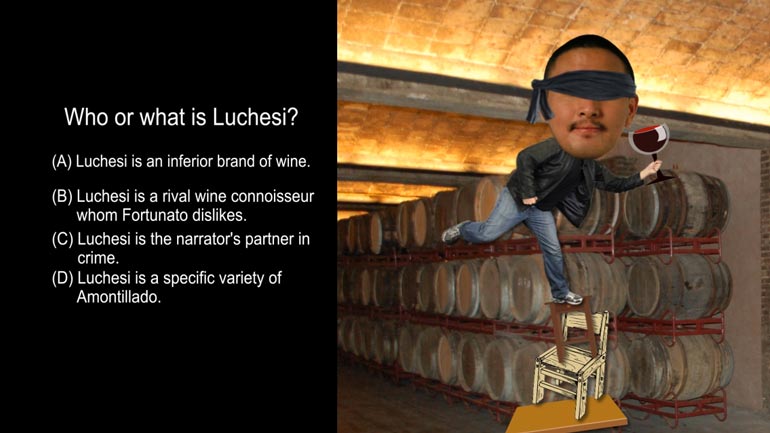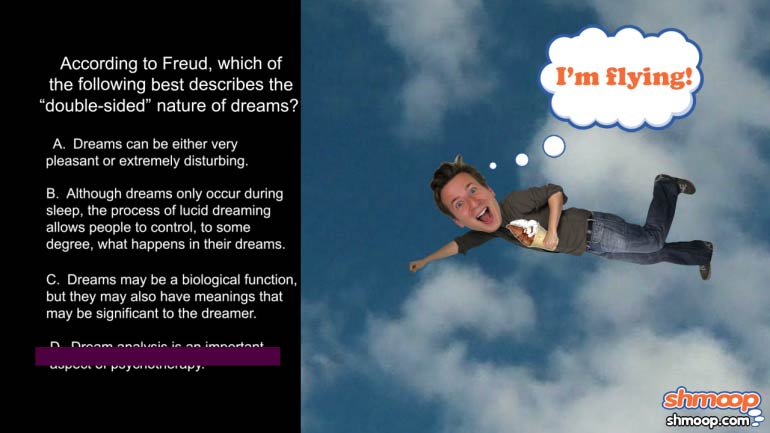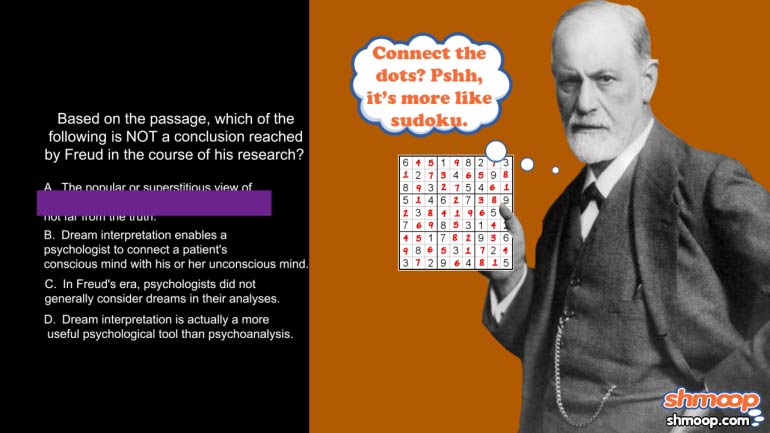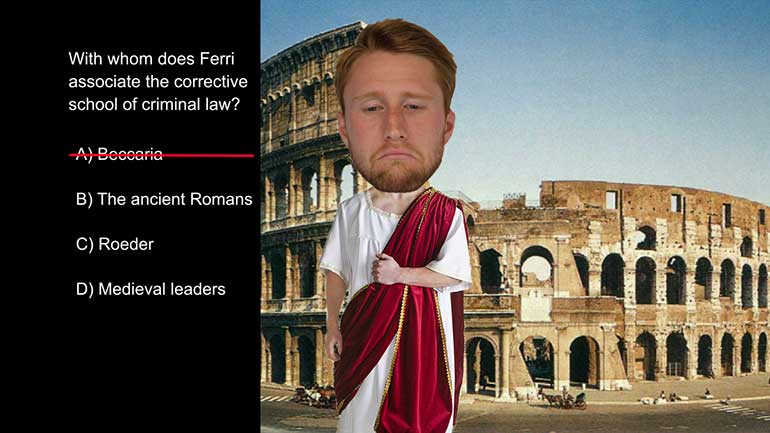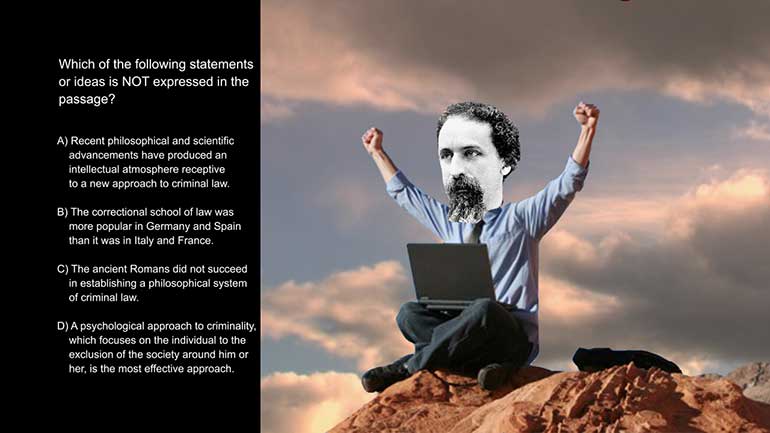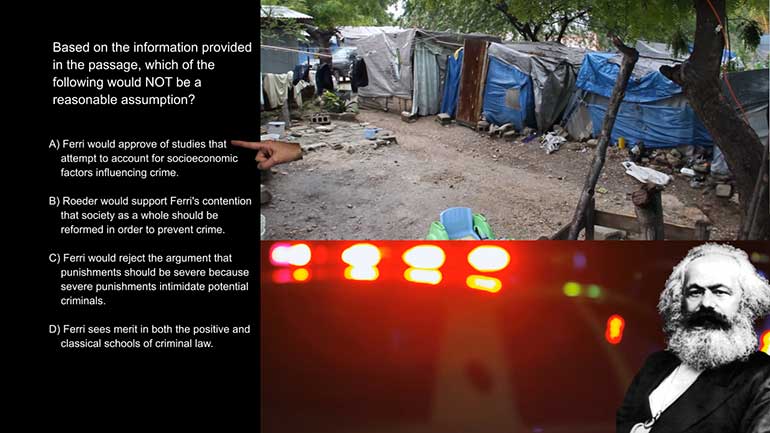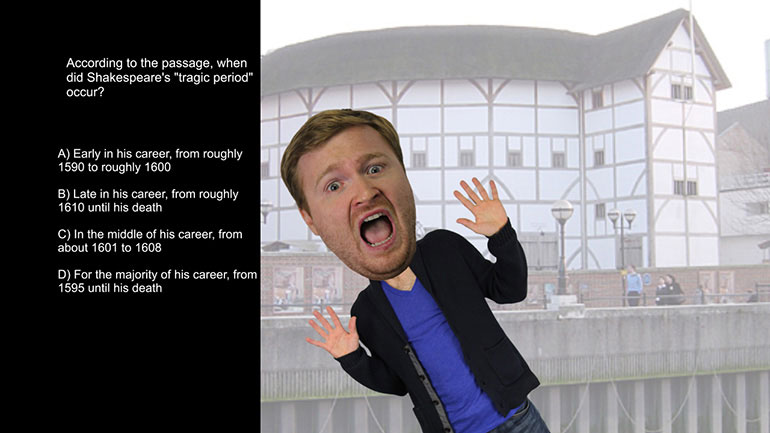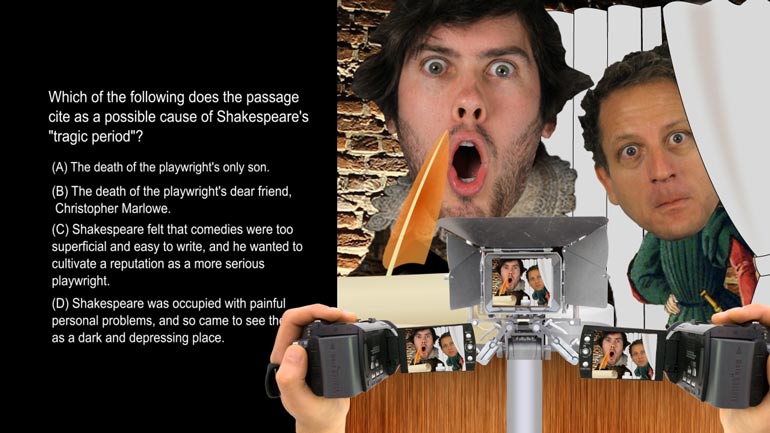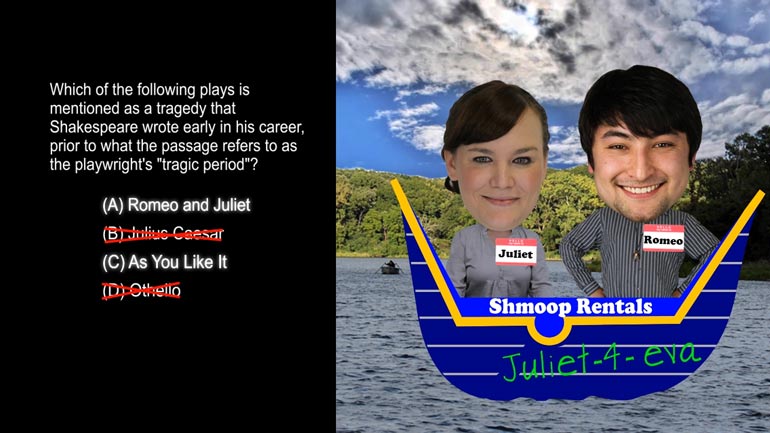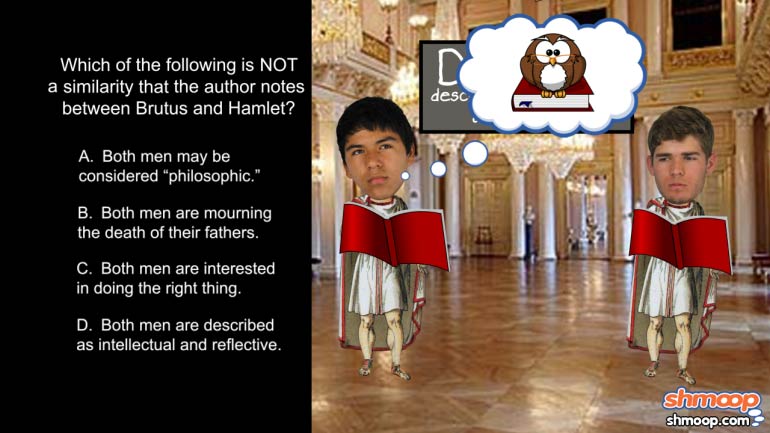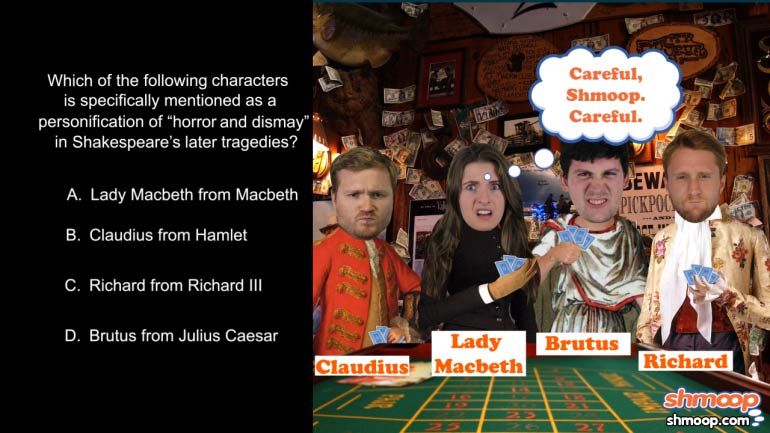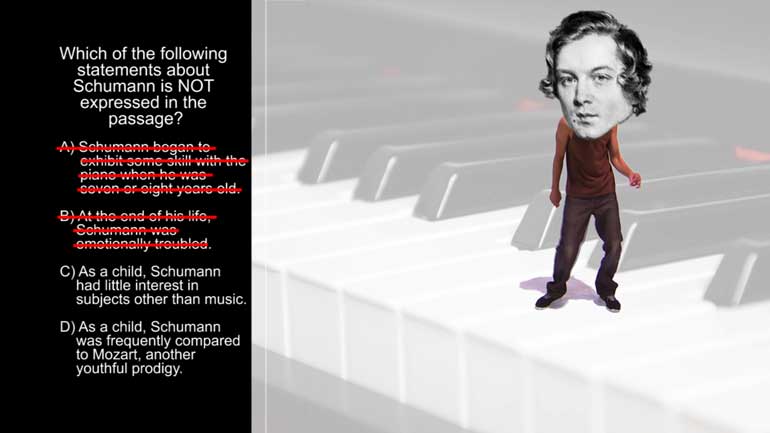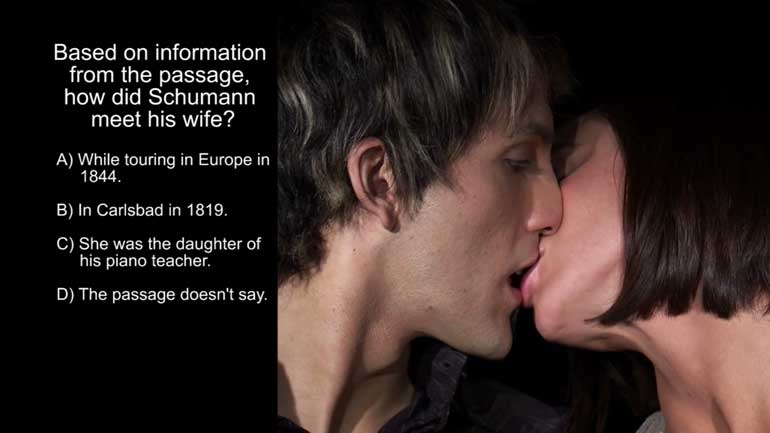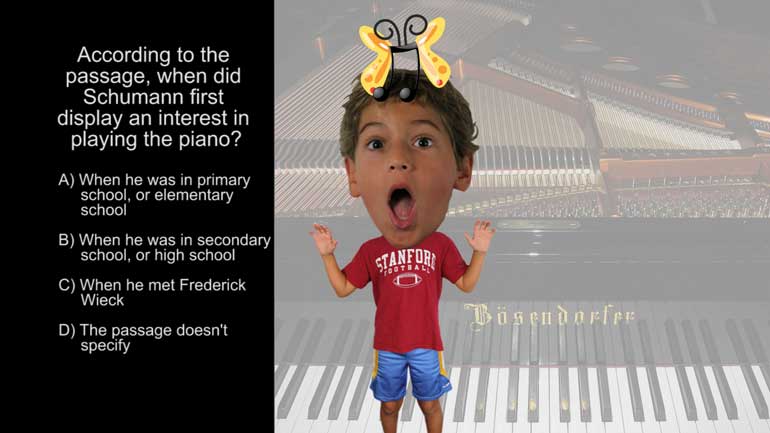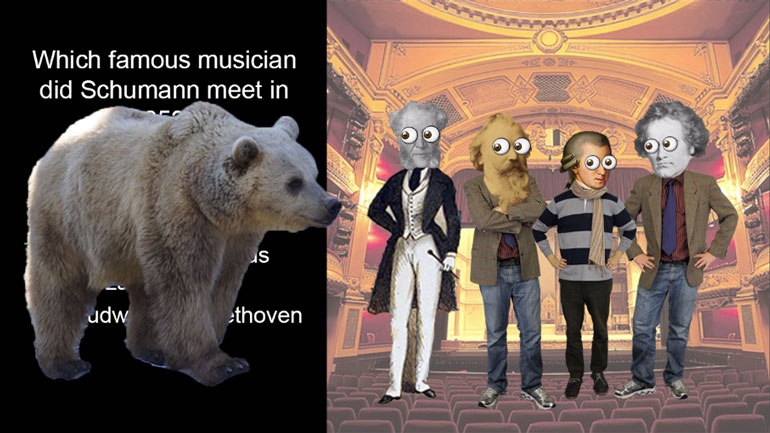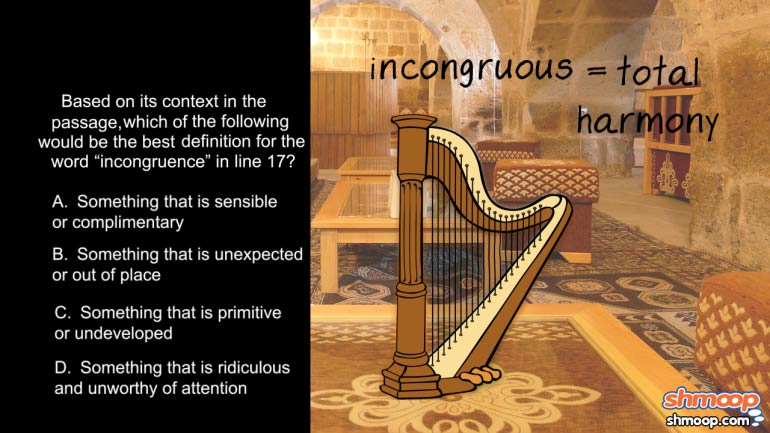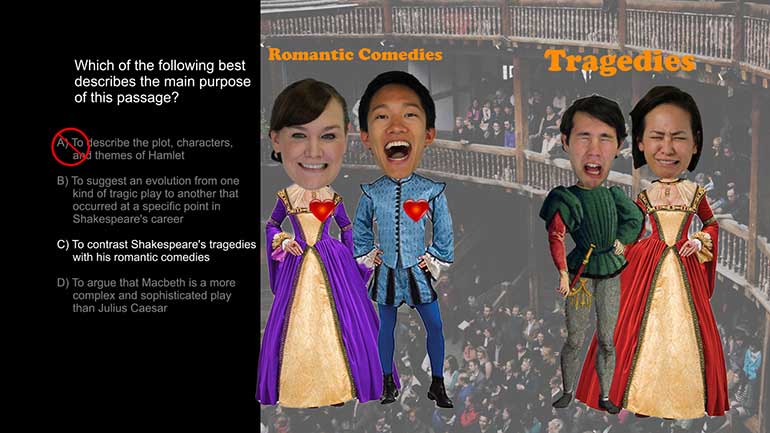ShmoopTube
Where Monty Python meets your 10th grade teacher.
Search Thousands of Shmoop Videos
Identify and Interpret Details Videos 34 videos
ACT Reading Prose Fiction Drill 1, Problem 1. Which of the following best describes the overall purpose of this passage?
ACT Reading: Social Science Passage Drill 1, Problem 1. According to Freud, how were dreams understood in what he refers to as the "prescienti...
ACT Reading 1.6 Prose Fiction. What happens to the caul with which the narrator is born?
ACT Reading 1.4 Humanities Passage 391 Views
Share It!
Description:
ACT Reading: Humanities Passage Drill 1, Problem 4. Which of the following does the passage cite as a possible cause of Shakespeare's "tragic period"?
Transcript
- 00:04
Here's your Shmoop du jour, brought to you by William Shatner..... er Shakespeare.
- 00:08
Sorry, it's late here at Shmoop.
- 00:14
Brought to you by William Shakespeare.
- 00:16
Not the one you're thinking of—he's this guy we know who has the same name and works at a Cinnabon in Toledo.
- 00:47
Which of the following does the passage cite as a possible cause of Shakespeare's "tragic period"?
Full Transcript
- 00:56
Somewhere in this passage, Professor Bradley gets all up in Shakespeare's business...
- 01:01
...and theorizes about how the Bard's personal life might've caused him to write a bunch of tragedies.
- 01:06
It's our job to figure out just what personal details the Professor is trying to expose.
- 01:12
Whether it's really any of our business or not.
- 01:16
Shakespeare did have a son, who died at 11 years old, named Hamnet. Yep... Hamnet. Probably
- 01:22
a complete coincidence.
- 01:25
The passage doesn't mention anything about poor little Hamnet, so (A) is incorrect.
- 01:33
Chances are good that Shakespeare and fellow playwright Christopher Marlowe did know each other.
- 01:37
It's not like the London theatre scene was all that huge back then.
- 01:41
However, nobody knows if they were friends per se, and the passage doesn't make any such claim.
- 01:47
So there's nothing to indicate that Shakespeare gave two hoots when Marlowe died in the bar
- 01:51
fight, which some say was actually an assassination.
- 01:53
Who knows? Maybe, Billy himself called the hit...
- 02:00
Shakespeare wrote tons of comedies that are really deep, so it's doubtful he thought
- 02:03
the entire genre was "superficial," or shallow. He knew that sometimes comedy can
- 02:08
really hit us where it counts.
- 02:11
In lines 39 through 41, Professor Bradley does theorize that perhaps Shakespeare thought
- 02:15
tragedy was the greatest form of drama, but he doesn't compare it to comedy specifically.
- 02:20
So, we're totally convinced that we can cross (C) off the list.
- 02:24
Instead, the passage suggests that Shakespeare gravitated toward tragedies because his view
- 02:30
of the world had changed as he grew older and more experienced.
- 02:34
The author figures that the longer one lives, the sadder one feels about everything?
- 02:39
Well, that's encouraging.?
Related Videos
ACT Reading 1.5 Social Science Passage. Based on its context in the passage, which of the following would be the best definition for the word...
ACT Reading: Humanities Passage Drill 1, Problem 1. Which of the following best describes the main purpose of this passage?
ACT Reading: Natural Science Passage Drill 1, Problem 1. Which of the following best describes the overall purpose of this passage?
ACT Reading Prose Fiction Drill 1, Problem 1. Which of the following best describes the overall purpose of this passage?
ACT Reading: Social Science Passage Drill 1, Problem 1. According to Freud, how were dreams understood in what he refers to as the "prescienti...

